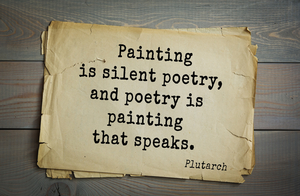‘Books are the quietest and most constant of friends; they are the most accessible and wisest of counselors, and the most patient of teachers.’
-Charles William Eliot
Literature, in the form of novels, short stories, poetry or plays, can enable us to transcend our physical environment. In just a few sentences we can be transported to 1950s Cuba with Hemingway, Narnia with Lewis and contemporary Afghanistan with Hosseini.
Writers walk us through unfamiliar paths in the shoes of fictional characters that we learn to empathize with. However, by the time we put down the book it is often ourselves that we have learnt something about.
This transcendent quality was the focus of an online course, titled Literature and Mental Health: Reading for Well Being, which the University of Warwick, England hosted. Speaking to writers, actors and professors the aim of the course is to show that reading fiction is an effective way to deal with a myriad of mental health issues and emotional situations.
Stephen Fry on reading and depression
One of the key figures that the team in charge of the course spoke to was celebrated English intellectual Stephen Fry.

As a respected comedian, actor, television presenter and writer, Fry has become one of the most recognisable faces in English culture, renowned for his wit and knowledge. He has also, over the course of his life, struggled with manic depression and bipolar disorder.
In the face of his mental health issues he has found solace and understanding in novels and poetry. He believes the latter has been critical to his ability to understand and express himself, whether he is reading or writing it.
‘It seems language and poetry, which one takes to be the highest expression of language, is a natural way for me both to grapple with demons but also to escape from them,’ Fry said. ‘You can express ideas in an unusual way when you’re a poet; you can express your feelings, the turbulence within you.’
Fry’s views on the power of poetry in his personal fight against mental health issues are an example of the transformative power that fiction can have on the psyche. The course focussed on six major events and psychological illnesses to educate the 9000 participants – stress, heartbreak, bereavement, trauma, depression and bipolar, ageing and dementia. However, it wasn’t the first time that researchers have theorized the effects of literature on mental well-being…
Bibliotherapy

The idea of literature as therapy emerged towards the end of the 19th century and was spearheaded by the ‘father of modern psychology’ – Sigmund Freud. During his sessions with war veterans, he would prescribe ‘calming’ books to those suffering from PTSD.
His method proved so successful that it became common practice for soldiers returning from World War One to be prescribed a course of reading and a recommendation to write about their experiences, which saw the reemergence of a literary genre – war poetry.
In the 21st century, the practice is now commonly referred to as bibliotherapy and has found prominence thanks to two people. Susan Elderkin and Ella Berthoud founded their global bibliotherapy network, The School of Life, after years of friendship where they would suggest books to one another depending on what was troubling them at the time.
The School of Life now offers a full psychological assessment, in person or remotely, and a ‘prescription list’ of books specifically tailored to your emotional and psychological state.
Although many of us have experienced the uplifting or empathetic effects of literature over the course of our lives, the field of bibliotherapy is based on more than anecdotal evidence. A study published in the Annual Review of Psychology in 2011 showed that when the participants read passages about emotional events in a character’s story, they experienced the same emotion as the character.
Moreover, fMRI scans showed that the area of the brain that was stimulated by an actual emotional event was also stimulated whilst reading a similarly emotional passage. The results proved that the power of empathy with a fictional character helps prepare us for similar events in our own lives, which in turn make us more capable of psychologically dealing with future negative emotions or situations.
For readers, the results of this study are hardly surprising. However, they give bibliotherapy much needed scientific credibility for the universal application of its principles.
To ‘disappear’ into a fictional world for a few hours can provide us with the perfect antidote to the stresses and strains of everyday life. It also helps us become more empathetic, open-minded and well-rounded individuals capable of making sense of our own lives and the lives of others.
In the vast swathes of books that have been published, we will find people, living or dead, who make us feel understood and have vocalized thoughts that we fear to be abnormal. Fiction teaches us that we aren’t journeying alone in the real world.
‘The best moments in reading are when you come across something – a thought, a feeling, a way of looking at things – that you’d thought special, particular to you, and here it is, set down by someone else. A person you’ve never met, maybe even someone long dead. And… it’s as if a hand… has come out… and taken yours.’ ~Alan Bennett
This article was written by The Hearty Soul. The Hearty Soul is a rapidly growing community dedicated to helping you discover your most healthy, balanced, and natural life.
Sources:
http://www.newyorker.com/culture/cultural-comment/can-reading-make-you-happier
https://www.futurelearn.com/courses/literature
http://www.theschooloflife.com/london/shop/individual-bibliotherapy/

